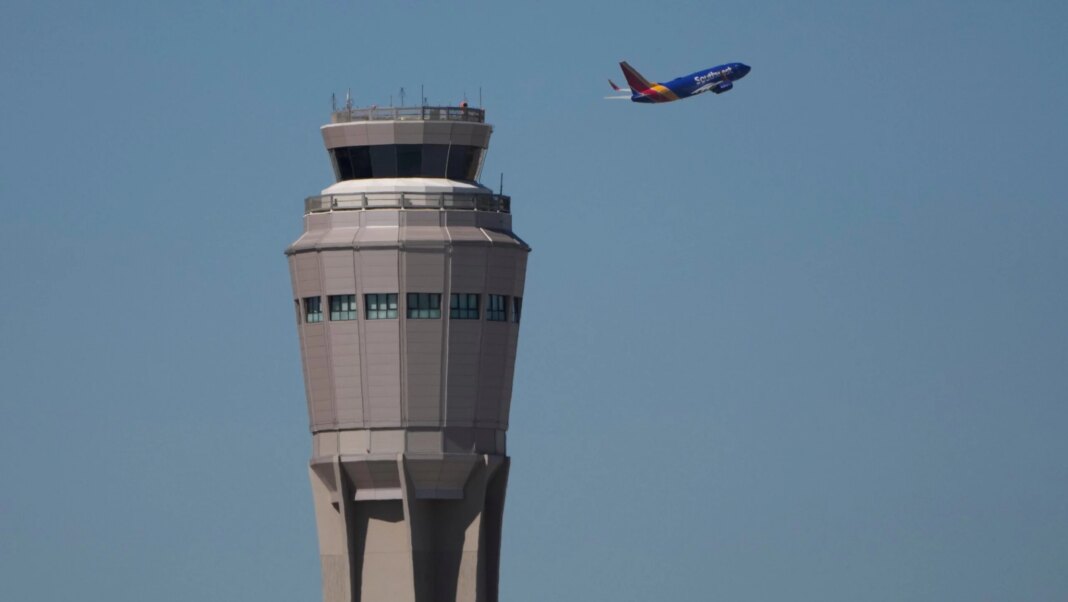Staffing Shortages and Flight Delays: The Impact of the Ongoing Federal Government Shutdown
In the past week, U.S. airports faced significant flight delays, primarily due to staffing shortages exacerbated by the ongoing federal government shutdown. The shutdown, now stretching into its seventh day, has strained essential services like air traffic control and airport security, raising concerns among travelers and industry stakeholders alike.
Key Airports Feeling the Pinch
Airports in major cities such as Nashville, Boston, Dallas, Chicago, and Philadelphia reported notable staffing issues. The Federal Aviation Administration (FAA) temporarily reduced takeoffs to and from these cities, recognizing the urgent need to maintain flight safety amid dwindling staff. This situation mirrors disruptions experienced just a day earlier at locations including Burbank, Newark, and Denver, demonstrating the widespread challenges affecting the aviation sector.
Flight Statistics Amidst the Chaos
Despite staffing challenges, data from aviation analytics firm Cirium revealed that approximately 92% of the over 23,600 flights departing from U.S. airports on Tuesday managed to take off on time. This statistic, while encouraging, masks the growing anxiety surrounding potential broader impacts on air travel. Travel industry analyst Henry Harteveldt pointed out that continued staffing issues could significantly disrupt holiday travel plans as Thanksgiving approaches, further complicating the travel landscape.
The Human Element: Federal Workers in the Crosshairs
The situation for federal employees, particularly air traffic controllers and TSA officers, is becoming increasingly dire. Many of these workers are currently on the job without pay, which raises serious concerns about their financial well-being. As the shutdown persists, the likelihood of air traffic controllers calling out sick or expressing discontent is on the rise, further contributing to the staffing crisis. Transportation Secretary Sean Duffy noted a marked increase in sick calls at some locations, amplifying worries about safe flight operations.
Real-World Consequences of Staffing Cuts
The impact of staffing shortages can be severe and immediate. For instance, the control tower at Hollywood Burbank Airport recently closed for several hours due to insufficient staffing, causing average delays of two-and-a-half hours. This scenario illustrates how even a couple of absent air traffic controllers can lead to widespread repercussions in air travel.
Calls for Urgent Action
Union leaders are vocalizing their concerns regarding the shutdown’s repercussions on federal workers’ livelihoods. Nick Daniels, president of the National Air Traffic Controllers Association, expressed frustration over the unfair burden placed on workers, who are expected to remain dedicated amidst financial uncertainty. Similarly, Johnny Jones, representing TSA workers, highlighted the distress of employees managing personal bills and the stress of potentially being penalized for missed work during the shutdown.
Community Support: A Silver Lining
In light of these challenges, efforts to support federal workers are emerging across the country. Airports like Hartsfield-Jackson Atlanta International are stepping up, providing $15 food vouchers and allowing federal employees to park at the terminal at no charge. Additionally, Tampa International Airport has initiated “Operation Bald Eagle 2,” which includes a food pantry, free bus rides, and partnerships with local utility companies to help keep federal workers’ lights on at home.
Closing Thoughts: A Call for Unity and Support
As the situation develops, the aviation industry and federal employees continue to grapple with the effects of the shutdown. Unions and airlines alike are advocating for a swift resolution to the crisis, hoping to alleviate the burdens on essential workers while ensuring that air travel remains safe and efficient for all. The collective call for support highlights the resilience of both the aviation community and the federal workforce in facing these unprecedented challenges.



